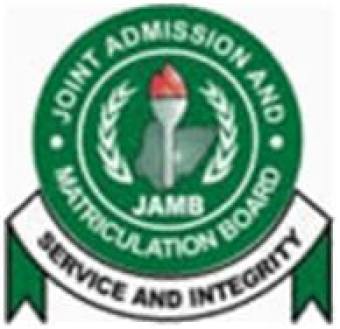Education
JAMB proposes to stop setting cut-off marks for universities, polytechnics, others

The Registrar, Joint Admissions and Matriculation Board (JAMB), Is-haq Oloyede, says the board is working with the Federal Government to actualise the needed change in the education sector.
Mr. Oloyede, who made the assertion in a statement by the board’s Head, Media and Information, Fabian Benjamin, said on Sunday in Lagos that such change would be possible with the ongoing reforms in the establishment.
“The Prof. Is-haq Oloyede-led management of JAMB has resolved to ensure that the change agenda of President Muhammadu Buhari government concerning education is actualised in no distant time.
“This will be made possible through major reforms currently going on in the board.
“I want to insist that the board will continue to make reforms that will carry the interest of every Nigerian child irrespective of status or class,” the statement quoted the Registrar as saying.
It added that Mr. Oloyede expressed concern that most national policies over the time were geared toward accommodating the interest of the elite only and leaving the downtrodden to suffer unjustly.
“In view of the above, the board restates that one of such reforms it carried out recently was the cancellation of the use of scratch cards as part of its examination process.
“We shall continue to evolve and come up with innovations that will take us to the next level.
“We must continue to think and come up with new ways of doing things in the 21st century.
“This will ensure that our services are easily accessible as well as discourage fraudulent or sharp practices associated with some of the examination processes so as to conform to global best practices,” it said.
According to the statement, the registrar also disclosed that the board has critically looked at the process of regularising candidates and found a lot of lapses.
It said that the board could not tolerate the trend in its drive to effect positive change toward enhancing the fortune of tertiary education in Nigeria.
The statement said JAMB had designed a template to be completed on-line by candidates and endorsed by the Vice-Chancellors, Rectors, Provosts or Registrars of the candidates’ institutions of choice.
The templates, it said, would be submitted to the board’s offices nearer to the institution for the registrar’s approval subject to available evidence.
“The Registrar may deny approval if sufficient and convincing reasons are not given.’’
It urged the public to note that all admissions were done by the academic board of tertiary institutions which, hitherto, were submitted to the board to ensure that admissions met set requirements by proprietors of the institutions and government criteria.
According to the statement, there is no basis for regularisation.
It said that the board only designed the process to clear any backlog as it did not intend to continue with regularisation exercise again.
The statement said Mr. Oloyede called for a national debate on the propriety of cut off marks as institutions should be allowed to determine the kind of candidates they wanted.
It argued that the uniformity of cut of marks did not in any way make sense when Colleges and Polytechnics admit for NCE and Diplomas.
It said the universities on the other hand, admitted for degrees and yet all candidates were subjected to the same cut off marks.
It added that such stopped the Polytechnics and Colleges of Education from admitting candidates whom, if not engaged, might compromise their future.
The statement expressed worries over class opportunities as it affected the distribution of admission resources, noting that the rich had multiple opportunities, including going abroad for studies.
It said the poor only had the opportunity of struggling for the scarce access within the country.
The statement said children of the rich also participated in the Unified Tertiary Matriculation Examination (UTME) and if they do not get the required cut-off marks, they proceeded abroad to further their studies.
It noted that on return at the end of their academic pursuits, their rich parents get them integrated.
It said their less privileged counterparts who could not afford such luxury stay behind still trying to get access that might never come.
“Let institutions admit what they want according to their needs. This means that if a university wants 250 as minimum cut off marks, why not let it be and if another want less, then so be it.
“If a polytechnic like Yaba College of Technology in Lagos wants 250 students, let it admit and if Gboko Polytechnic in Benue wants less than 200 let it be.
“Institutions should be known for their individual quality and not collective standard.
“This will foster positive competition for the overall good of our tertiary institutions,’’ the statement said.
The statement urged Nigerians to critically reflect on the development for the board to take action that would be for the good of the country’s education as well as the future of the Nigerian child.
PREMIUM
-

 News4 days ago
News4 days agoRamadan, Lent: Shettima Calls For National Unity And Compassion
-

 Opinion4 days ago
Opinion4 days agoReinventing Osun’s Economy Through Dagbolu Intl. Trade Centre: From Quiet Market Lessons To Regional Trade Revolution By Adeboye Adebayo
-

 News4 days ago
News4 days ago‘Wike Factor’: Another PDP Chairmanship Candidate Steps Down For APC In FCT
-

 News2 days ago
News2 days agoInsecurity: Kogi Schools Resume On Monday



